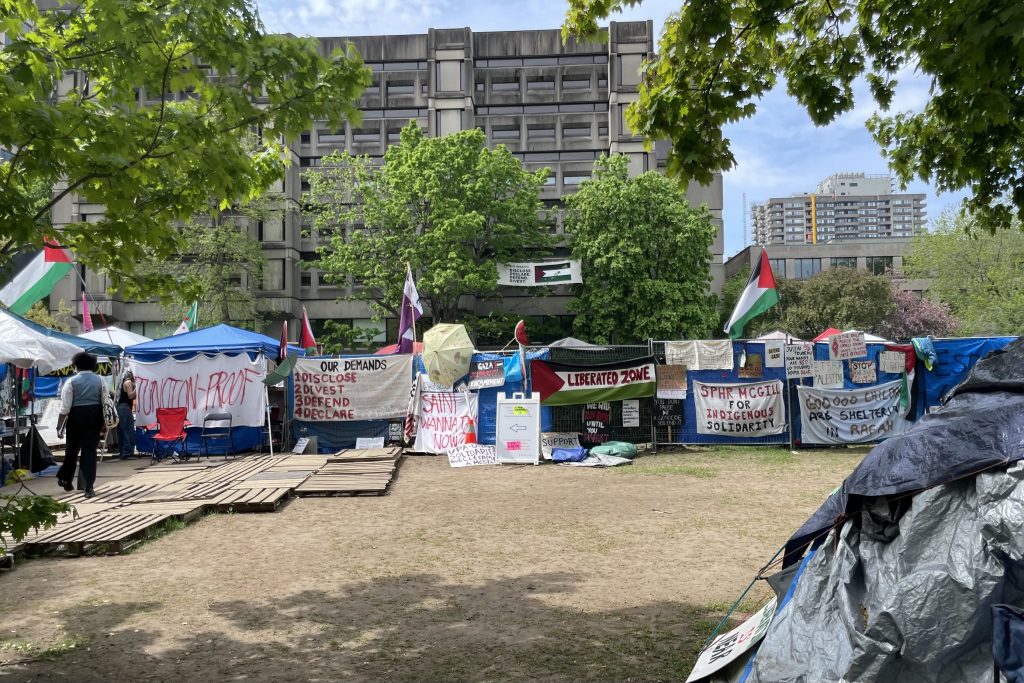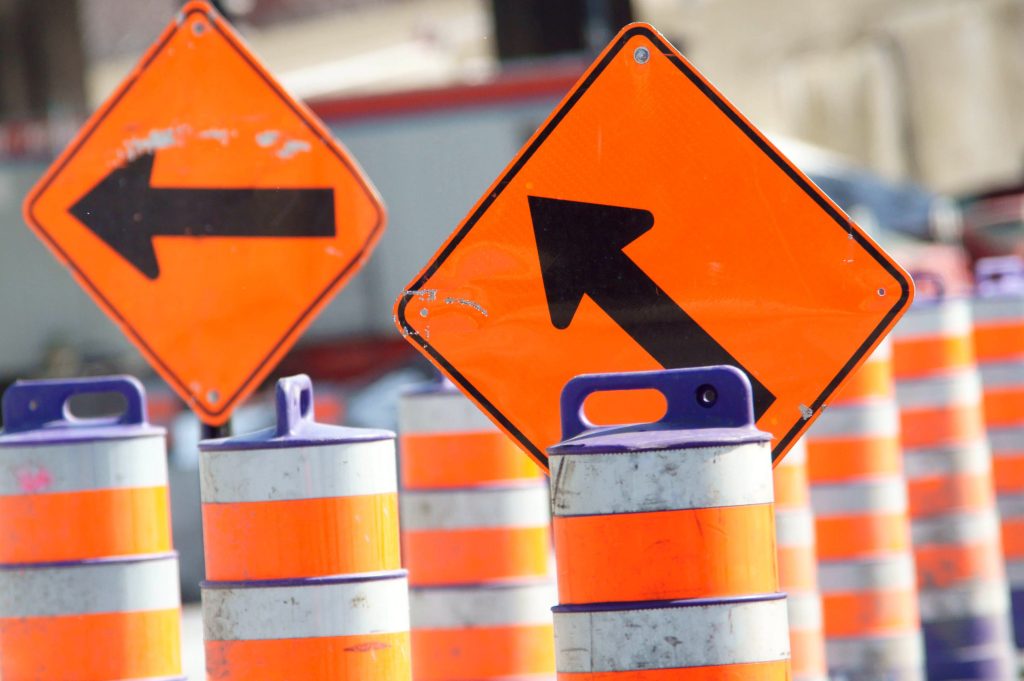Relation between Indigenous and RCMP founded on oppression, as strained as ever: activist
Posted May 19, 2021 4:00 am.
Last Updated May 19, 2021 6:46 pm.
OTTAWA (CityNews) — A leading Indigenous activist says one year after protesters took to the streets demanding justice in the wake of George Floyd’s death, the relation between Canada’s Indigenous population and its national police force is as strained as ever.
In the nation’s capital, headquarters for the Royal Canadian Mounted Police lie on unceded Algonquin territory — a physical manifestation of the contradiction at the heart of RCMP-Indigenous relations.
Pam Palmater, an attorney and Mi’kmaq woman from Eel River Bar First Nation, in New Brunswick, says those relations were historically founded on oppression.
“They were the primary enforcers of Canada’s Indian policy, which we know now, from the National Inquiry into Missing and Murdered Indigenous Women and Girls, was actually a genocidal policy,” said Palmater, who is also an author and holds Ryerson University’s Chair in Indigenous Governance. “It was about trapping First Nations people on reserves, not allowing them to hunt and fish, making them live on rations, sexually exploiting and abusing First Nations girls on reserves, making sure settlement could continue, and railways and mining, and everything the settler or colonial government wanted to do.
“The North-West Mounted Police, which later became the RCMP, have started out that way and continued that way ever since.”
Author Steve Hewitt, who has written three books on RCMP history, says a difficult relationship between Canada’s federal police and Indigenous peoples has existed since the police service’s founding.
Hewitt says when Sir John A. Macdonald created the North-West Mounted Police, he had a clear blueprint in mind: the Royal Irish Constabulary (RIC). According to Hewitt, the RIC was established to enforce British policy in Ireland and evict Irish people from their land.
Canada’s mounted police had a similar role, he says.
“It was designed to go west, to basically take control of the lands there, and to help move Indigenous peoples onto reserves,” said Hewitt.
WATCH: Trudeau says racism exists within the RCMP (June 11, 2020)
Calls to completely revamp or withdraw funding from police forces multiplied in Canada in the year since Floyd, a Black man in Minnesota, was killed when a police officer pressed a knee against his neck for nearly nine minutes.
Floyd’s death also put a spotlight on the treatment of Black, Indigenous and people of colour (BIPOC) by police forces worldwide.
That treatment has not improved, says Palmater, who adds the RCMP has won few friends among Indigenous people this past year.
“Look at the over incarceration rates of Indigenous peoples, the disproportionate high number of Native peoples killed by RCMP. I mean those are significant numbers,” said Palmater. “The widespread sexualized violence that’s been documented by Human Rights Watch and Amnesty International against Indigenous women and girls.
“Who’s the first to show up when we’re peacefully defending our land rights or water rights? It’s probably going to be the RCMP, and they’re not going to look like the RCMP riding around on their red coats and horses. They’re going to look like the military: heavily armed, armed vehicles, snipers, camouflage, fatigues, you name it. That’s how they relate to Indigenous peoples, even today.”
A recent report into how RCMP handled 22-year-old Colten Boushie’s killing in Saskatchewan concluded Mounties racially discriminated against Boushie’s mother. The report also showed an early RCMP media release suggested Boushie’s death in August 2016 was justified.
Last year, Athabasca Chipewyan Chief Allan Adam was sucker-punched and put into a chokehold by a Mountie who suspected Adam was driving impaired.
And Mounties in Nova Scotia were accused of refusing to intervene when a mob attacked an Indigenous fishery.
That’s an environment that makes being Indigenous in Canada more unsafe, says Palmater.
“When I had my own sons, who are grown now, from the time they were teenagers onward, I was like, ‘please, it doesn’t matter what your human rights are, it doesn’t matter what your civil charter rights and freedoms are. Please, if you ever get stopped by a police officer, whatever you do, don’t say anything. Don’t cause any problems.’
“‘Because I can’t get you back if they’ve already shot you.’”
WATCH: RCMP Commissioner struggles to address systemic racism (June 24, 2020)
Last year, RCMP Commissioner Brenda Lucki said some RCMP officers had unconscious biases, but couldn’t say if the organization was systematically racist. Lucki later corrected herself and apologized in front of the Assembly of First Nations (AFN).
“Throughout our history, whether it’s been fulfilling our mandate to enforce federal, provincial, territorial, municipal laws and policies, or through systemically racist institutional decisions, the RCMP has taken actions that have obviously eroded First Nations peoples’ trust, and some of these actions have left generational scars,” said Commissioner Lucki, speaking at a policing forum held by the AFN in March.
This year’s federal budget pledged funds for Mounties to address systemic racism: $75 million over five years and $13.5 million ongoing.
The RCMP says it intends to revise its entrance exam to bring in more diverse applicants. Commissioner Lucki says the force will also modernize its de-escalation training and make anti-racism training mandatory.
“We have a new Indigenous lived experience advisory group, which is now providing us with advice on how to advance reconciliation and address systemic racism issues,” Lucki told the Assembly of First Nations. “We’re partnering with Indigenous women’s groups, initiating an equity diversity and inclusion strategy.
“And we are now in the midst of formalizing a brand-new office for RCMP-Indigenous collaboration, co-development and accountability.”
WATCH: RCMP Commissioner Brenda Lucki addressed the Assembly of First Nations (March 18, 2021)
But Palmater says she isn’t counting on the RCMP to change itself. Instead, she looks to last summer’s massive outpouring of protests against racial injustice.
“Us coming together,” she said. “You see Indigenous people working with Black Lives Matter, and Stop Asian Hate working with Black Lives Matter and Indigenous peoples. The more we come together, I think that’s exceptionally powerful and it’s the kind of power they don’t have a control on.
“They can monitor us. They can waste money spying on us, but they can’t stop the power in the peaceful coming together of people who care about peace and safety and human rights.”
–with files from Xiaoli Li



